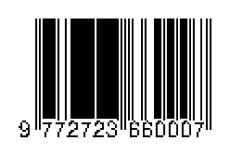Analisis Pengetahuan Masyarakat Tentang Zakat Produktif
DOI:
https://doi.org/10.59141/jiss.v4i01.763Keywords:
Productive Zakat, Consumptive Zakat, BAZNAS, MuzakkiAbstract
So far, productive zakat has not been fully understood correctly by the people of Indonesia, this is because there is not much understanding of productive zakat. This is due to the view of society, especially the Muzakki that zakat fitrah is the most important zakat. In Islam zakat is known as a way of empowering the people with management funds coming from people's funds, productive zakat was born due to the encouragement of the times where technology is moving forward so that the movement of collecting zakat is flexible and covers any space. Productive zakat and consumptive zakat have a big impact on the welfare of the people, but it needs to be emphasized that productive zakat has a greater value for the benefit of mustahik and has the potential to become productive zakat in society. Indonesian government agencies have worked through the efforts of BAZNAS (National Amil Zakat Agency) as amil Zakat and the role of zakat management is not only to support the poor or the needy, but also a non-temporary permanent goal that is the right step. alleviate poverty and can increase Assess the level of poverty by providing productive zakat assistance.
References
Abdussamad, H. Z., & Sik, M. S. (2021). Metode Penelitian Kualitatif. Cv. Syakir Media Press. Https://Books.Google.Co.Id/Books?Hl=En&Lr=&Id=Jtkreaaaqbaj&Oi=Fnd&Pg=Pr5&Dq=Observasi+Kualitatif+Dapat+Berguna+Bagi+Menggali+Fenomena+Alam+Dan+Merupakan+Instrumen+Kunci&Ots=Vcjvt_0bq5&Sig=Elm8mxiytirnspzucattgqfl7rk&Redir_Esc=Y#V=Onepage&Q&F=False
Dorong Muzakki Taat Zakat Baznas Harus Berinovasi. (2021). Kominfo.
Dukcapil Kemendagri Rilis Data Penduduk Semester I Tahun 2022, Naik 0,54% Dalam Waktu 6 Bulan. (2022). Direktorat Jenderal Kependudukan Dan Pencatatan Sipil.
Fahroji, O. (2020). Implementasi Pendidikan Karakter. Qathrunâ, 7(1), 61–82. File:///C:/Users/User/Downloads/3030-13-8067-1-10-20200908 (3).Pdf
Ilmiyah, T., & Ati, S. (2013). Pengaruh Pemanfaatan Koleksi Local Content Terhadap Kegiatan Penelitian Mahasiswa Yang Sedang Mengerjakan Skripsi/Tugas Akhir Di Perpustakaan Fakultas Ilmu Budaya Universitas Diponegoro Semarang. Jurnal Ilmu Perpustakaan, 2(2), 137–151. Https://Ejournal3.Undip.Ac.Id/Index.Php/Jip/Article/View/3122
Magfiroh, S. D. (2018). Efektivitas Dana Zakat Dalam Upaya Pengentasan Kemiskinan (Studi Pada Program Pemberdayaan Ekonomi Di Lazis Jateng Cabang Pekalongan). Iain Pekalongan. Http://Etheses.Iainpekalongan.Ac.Id/1744/
Persentase Penduduk Miskin Maret 2022 Turun Menjadi 9,54 Persen. (2022). Badan Pusat Statistik.
Rosmawati, R. (2014). Pengembangan Potensi Dana Zakat Produktif Melalui Lembaga Amil Zakat (Laz) Untuk Meningkatkan Kesejahteraan Maasyarakat. Padjadjaran Jurnal Ilmu Hukum, 1.
Rukin, S. P. (2019). Metodologi Penelitian Kualitatif. Yayasan Ahmar Cendekia Indonesia. Https://Books.Google.Co.Id/Books?Hl=En&Lr=&Id=Gywydwaaqbaj&Oi=Fnd&Pg=Pr4&Dq=Observasi+Kualitatif+Dapat+Berguna+Bagi+Menggali+Fenomena+Alam+Dan+Merupakan+Instrumen+Kunci&Ots=E9arjuurc7&Sig=Cts5au96qy2fpzoau27eo3fbcf0&Redir_Esc=Y#V=Onepage&Q&F=False
Rusdi, M. (2019). Strategi Pemasaran Untuk Meningkatkan Volume Penjualan Pada Perusahaan Genting Ud. Berkah Jaya. Jurnal Studi Manajemen Dan Bisnis, 6(2), 83–88. Https://Doi.Org/10.21107/Jsmb.V6i2.6686
Safitri, A., Riyanto, R., & Damayanthy, D. (2020). Pengaruh Pendistribusian Dana Zakat Produktif Terhadap Tingkat Pendapatan Mustahik Di Dpu Daarut Tauhid Bogor. El-Mal: Jurnal Kajian Ekonomi & Bisnis Islam, 1(2), 18–42. Https://Doi.Org/10.47467/Elmal.V1i2.313
Sahir, S. H. (2021). Metodologi Penelitian. Penerbit Kbm Indonesia. Https://Books.Google.Co.Id/Books?Hl=En&Lr=&Id=5mgfeaaaqbaj&Oi=Fnd&Pg=Pa1&Dq=Metodologi+Kualitatif+Deskriptif+Sugiyono&Ots=S99cow1est&Sig=Win18bmp3gkk_5r_Xjfzzamehcw&Redir_Esc=Y#V=Onepage&Q&F=False
Published
How to Cite
Issue
Section
License
Copyright (c) 2023 Wulan, Vikram Alparizi, Tri Divia Kasi, Dina Arofatul Maula

This work is licensed under a Creative Commons Attribution-ShareAlike 4.0 International License.
Authors who publish with this journal agree to the following terms:
- Authors retain copyright and grant the journal right of first publication with the work simultaneously licensed under a Creative Commons Attribution-ShareAlike 4.0 International. that allows others to share the work with an acknowledgement of the work's authorship and initial publication in this journal.
- Authors are able to enter into separate, additional contractual arrangements for the non-exclusive distribution of the journal's published version of the work (e.g., post it to an institutional repository or publish it in a book), with an acknowledgement of its initial publication in this journal.
- Authors are permitted and encouraged to post their work online (e.g., in institutional repositories or on their website) prior to and during the submission process, as it can lead to productive exchanges, as well as earlier and greater citation of published work.















